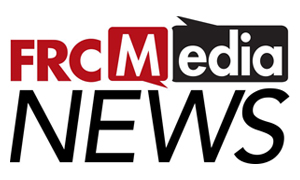Massachusetts Governor Charlie Baker has unveiled a strategy to return nearly $3 billion of excess revenue back to taxpayers.
From the Governor’s Office
BOSTON – Following the State Auditor’s certification yesterday that Fiscal Year 2022 (FY22) net state tax revenues exceeded allowable revenues per Chapter 62F by $2.941 billion, the Baker-Polito Administration has announced details regarding the return of this excess revenue to taxpayers.
“Stronger-than expected state tax revenues have led to a major surplus for Fiscal Year 2022, and we are pleased to be able to return nearly $3 billion in excess revenue to the taxpayers,” said Governor Charlie Baker. “With families facing continued pressure from high prices and inflation, these returns will provide some needed relief. Even with nearly $3 billion going back to taxpayers, significant state and federal resources remain, and we look forward to working with the Legislature to invest this funding into our economy, communities and families.”
“Strong economic growth throughout our Commonwealth, combined with careful management of state tax dollars, has resulted in a significant surplus this past fiscal year,” said Lt. Governor Karyn Polito. “In the coming months, our administration will work diligently to distribute these funds back to taxpayers, and we look forward to working with the Legislature to invest additional surplus dollars in local economies across our state.”
In accordance with the statute, the $2.941 billion will be returned to eligible taxpayers by the Department of Revenue in proportion to personal income tax liability in Massachusetts incurred by taxpayers in the immediately preceding taxable year – Tax Year 2021. In general, eligible taxpayers will receive a credit in the form of a refund that is approximately 13% of their Massachusetts Tax Year 2021 personal income tax liability. This percentage is a preliminary estimate and will be finalized in late October, after all 2021 tax returns are filed. To be eligible, individuals must have filed a 2021 state tax return on or before October 17, 2022. An individual’s credit may be reduced due to refund intercepts, including for unpaid taxes, unpaid child support, and certain other debts.
Individuals eligible for a refund will receive it automatically as a check sent through the mail or through direct deposit. Distribution of refunds is expected to begin in November 2022.
“While the exceptionally high tax collections we saw in FY22 are a testament to the strength and resilience of the Massachusetts economy, we are pleased to be in a position to return a substantial portion of this revenue back to taxpayers,” said Administration and Finance Secretary Michael J. Heffernan. “With many feeling the strain of rising prices, these refunds will be a welcome source of relief for more than three million hardworking individuals across the state, and we look forward to executing on the delivery of the refunds in the coming months.”
In total, $41.812 billion was collected in FY22, representing overall revenue growth of more than 20% above Fiscal Year 2021. After accounting for the Chapter 62F refunds and the recently filed $840 million final FY22 supplemental budget, a surplus of $1.5 billion remains available to support permanent tax relief measures and other critical investments pending in the FORWARD/economic development bill, in combination with $2.2 billion in remaining American Rescue Plan Act funds.
Additional information about Chapter 62F taxpayer refunds, including Frequently Asked Questions and a refund estimator, is available at www.mass.gov/62frefunds. This website will be updated as additional information becomes available in the coming months. A call center will also be available to answer questions about 62F refunds beginning Tuesday, September 20, 2022 at 877-677-9727 and will be open Monday through Friday, 9am-4pm. The call center will not be able to provide exact refund amounts – however, the estimator on the FAQs page can help individuals calculate a preliminary estimate.
About Chapter 62F
Chapter 62F is a Massachusetts law enacted by voters in 1986 via a ballot question that requires the Department of Revenue to issue a credit to taxpayers if total tax revenues in a given fiscal year exceed an annual cap tied to wage and salary growth in the Commonwealth.
The law requires that the Department of Revenue submit a report to the State Auditor on the net state tax revenues and the allowable state tax revenues for each fiscal year by September 1st. The State Auditor then makes the determination of whether net state tax revenues exceed allowable state tax revenues – and, if so, by what amount – on or before the third Tuesday of September. View the State Auditor’s report for Fiscal Year 2022.
The Chapter 62F process has been triggered once before, in 1987.
View the full statute: https://malegislature.gov/Laws/GeneralLaws/PartI/TitleIX/Chapter62F.










Comments are closed.